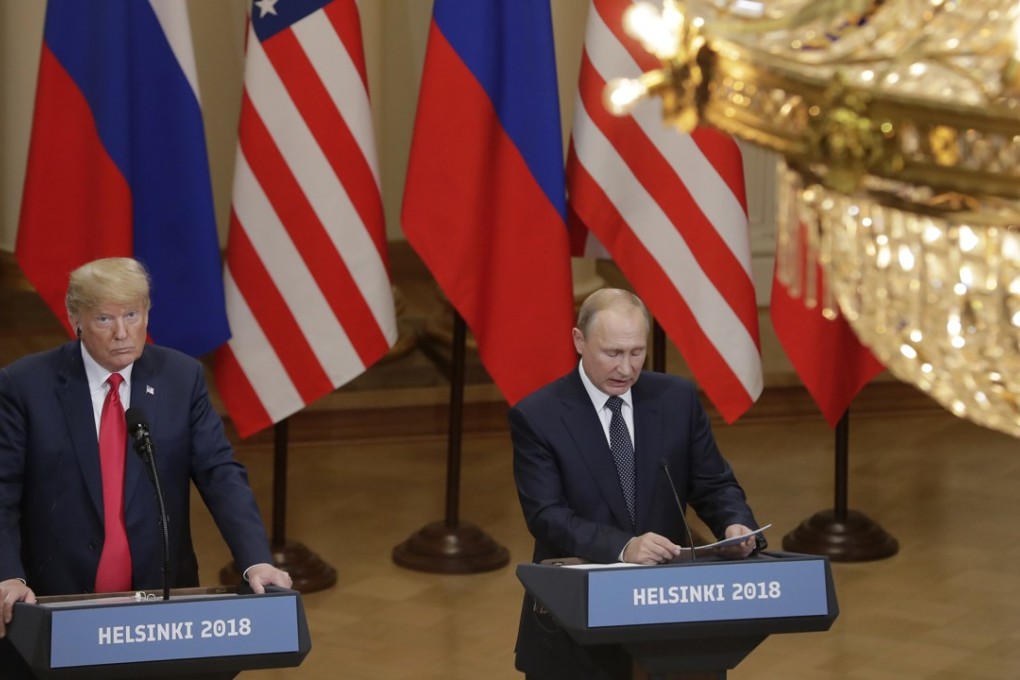Trump is wrong to so wantonly discard multilateralism
Leaders at the annual China-EU summit, held in Beijing just hours before Trump and Putin met, have understandably vowed to resist protectionism and unilateralism. Their duty, in the face of the American leader’s threats, is to uphold and improve the existing global order

The talks between US President Donald Trump and his Russian counterpart, Vladimir Putin, in Helsinki capped an extraordinary month for American foreign policy. Also featuring the meeting with North Korean leader Kim Jong-un, the Group of Seven and Nato summits and a visit to Britain, it is increasingly obvious that the Trump administration has no interest in abiding by the multilateralism that has fared the world so well since the end of the second world war. Alliances were dismissed as not in America’s interest, friends called foes and enemies embraced. China has to work with the European Union and others to uphold a system that is essential to prevent global conflict and chaos.
Trump has been widely criticised in the West for wanting to reset his country’s relationship with Russia. There is nothing wrong with seeking peace with a rival, but it is the manner in which he went about it by apparently ignoring thorny issues like Russian meddling in US elections, the Salisbury poisonings, Ukraine and the war in Syria that sparked criticism. What was discussed remains unclear; Trump went into the talks with Putin saying that among topics would be China, trade and missiles. The focus after the summit has been on his defence of the Russian leader and criticism of his country’s intelligence agencies.
China is cautiously watching the outcome, understandable given how a good balance of relations between the three powers is vital for world peace. Trump’s trade actions against Beijing and the EU – he called both along with Russia “foes” before meeting Putin – have deepened uncertainties. But of one matter there is clarity: he no longer wants his country, the world’s only superpower, to continue to take a leading role in keeping the status quo. Instead, he is pushing for a return to a less stable era, before the creation of multilateral institutions to ensure peace and prosperity, when big powers were governed by self-interest.
Trump’s criticism of the United Nations and World Trade Organisation and pulling the US from the Paris climate change accord and Iran nuclear deal pointed to such ambitions. But in the past month, he has made his intentions obvious, starting trade wars with China and the EU, becoming the first American leader to refuse to endorse a G7 communique, threatening to pull the US from Nato if its other members did not spend more on defence and in Britain, criticising leader Theresa May’s approach to withdrawing her country from the EU. Leaders at the annual China-EU summit, held in Beijing just hours before Trump and Putin met, have understandably vowed to resist protectionism and unilateralism. Their duty, in the face of the American leader’s threats, is to uphold and improve the existing global order.